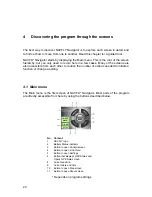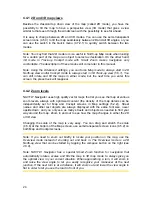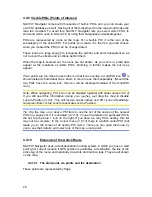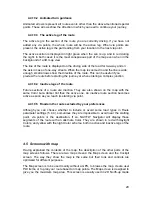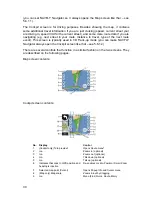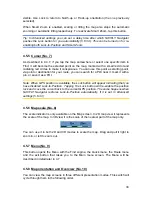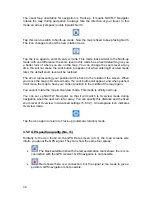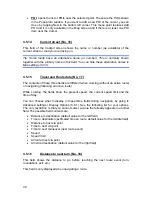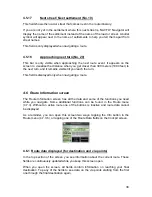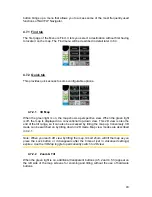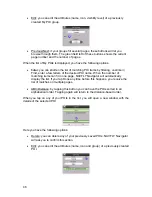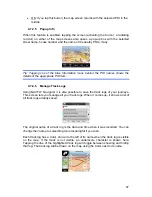
34
The usual map orientation for navigation is Track-up. It means NAVFLY Navigator
rotates the map during navigation to always face the direction of your travel. In this
mode an arrow (compass) points towards North.
Tap this icon to switch to North-up mode. Now the map is fixed to keep facing North.
The icon changes to show the new rotation mode.
Tap the icon again to enter Overview mode. This mode looks similar to the North-up
mode with one difference: the zoom level in this mode has a fixed default to give you
a better look of where you are on the map. You can change the zoom level at any
time, this will not cause the Lock button to appear, but when entering Overview mode
later, the default zoom level will be restored.
The arrow representing your position will be fixed in the middle of the screen. When
you move the map in Overview mode, the Lock button will appear, and when pushed,
it will move the map to have your current position in the middle of the map again.
You cannot rotate the map in Overview mode. This mode is strictly north-up.
You can set up NAVFLY Navigator so that it will switch to Overview mode during
navigation when the next turn is far away. You can specify this distance and the fixed
zoom level of Overview in Advanced settings (5.6.3.2). An aeroplane icon indicates
Overview mode.
Tap the icon again to return to Track-up (automatic rotation) mode.
4.5.9 GPS position quality (No. 11)
Similarly to the icon found on the GPS Data screen (4.3.3), the map screens also
inform you about the GPS signal. They can show the same four values:
•
The black satellite dish with the red exclamation mark shows there is no
connection with the GPS receiver. GPS navigation is not possible.
•
Red shows there is a connection, but the signal is too weak to give a
position. GPS navigation is not possible.

